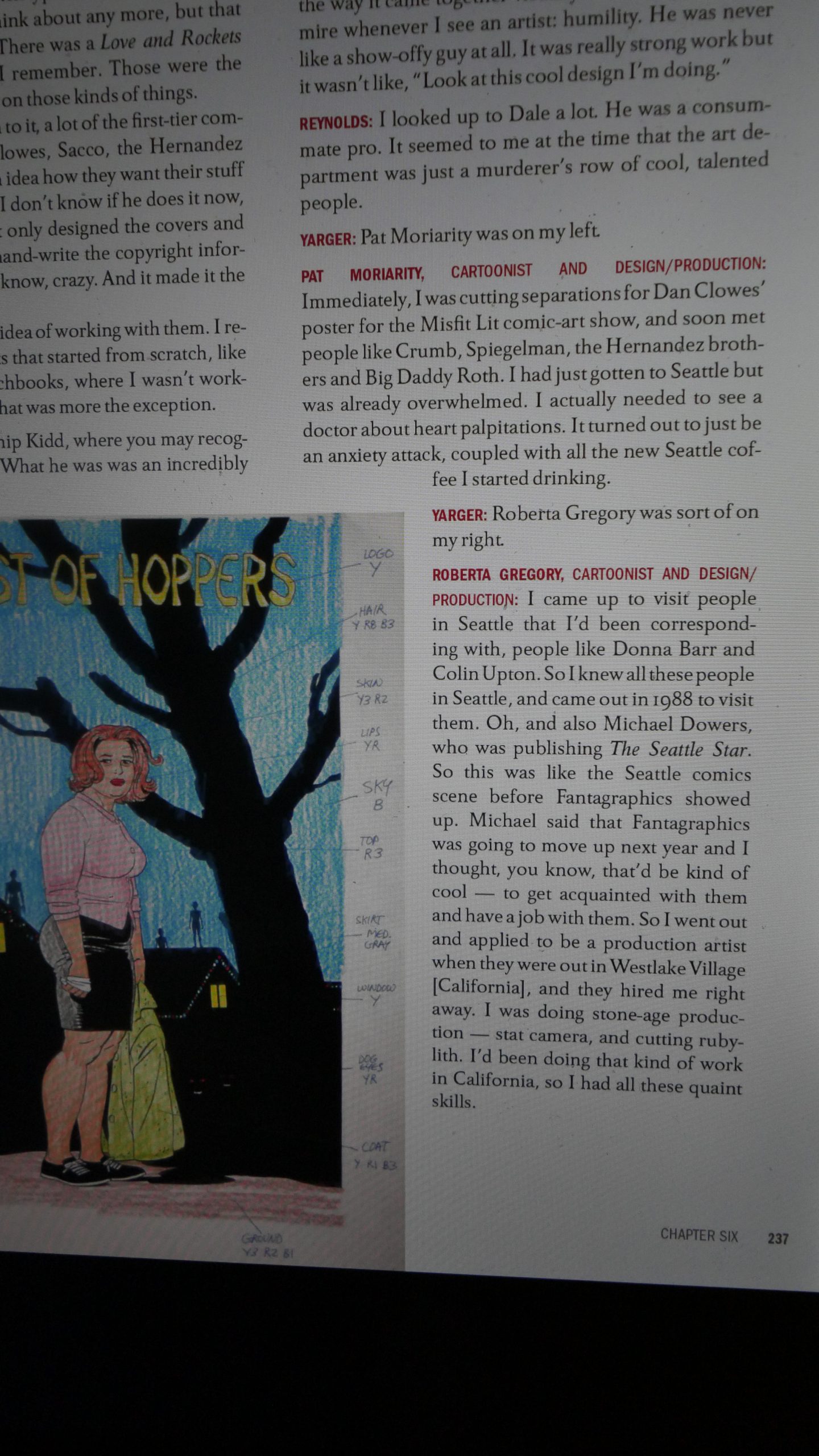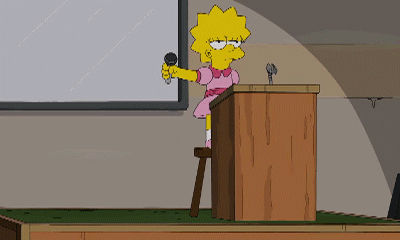Done!
 Perhaps I should just leave it at that, but I feel like bloviating a bit. (“NO! REALLY?”) But at the end of this post, there’ll be an index. Feel free to skip to it if you’re the index reading kind of person.
Perhaps I should just leave it at that, but I feel like bloviating a bit. (“NO! REALLY?”) But at the end of this post, there’ll be an index. Feel free to skip to it if you’re the index reading kind of person.
(The following should probably be read in the voice of Comic Book Guy.)
Last winter, I decided I had to re-read all of Love and Rockets, because… it’s Love and Rockets. And I had finally (sort of) gotten the comics sorted after being stashed in various places for decades, so it seemed like the time.
But then while doing all this arduous sorting, I was happening onto other comics that were singing a sirens’ song. Like… Dalgoda… Journey… Prime Cuts! I MUST RE-READ ALL THESE COMICS!
And, besides, it sounded like a fun project to chase down the comics I hadn’t bought at the time. (This part turned out to take more time than I had imagined: Of the comics I read for this project, I would guess that about one tenth were newly acquired. Thank you, Mile High Comics, Ebay and (*phooey*) Amazon.)
My original idea was to re-read everything Fantagraphics had published. Then I took a look at the comics.org listing for Fantagraphics, and then I thought… “well, OK, just the comic books. The floppies. The pamphlets”. And then I though “OK, dump Eros Comix, too. And Monster. And Hard-Boiled. And Ignatz?”
I used comics.org to source the list of Fantagraphics comics, and scribbled something to filter out the imprints. I think the final list should be pretty complete, but it’s probably not. And I’m not going back to fill in anything I missed.
So for this most nerdy of nerdy projects, I ended up with a list of *gulp* 231 comic series.
I almost stopped then and there, but now I had invested all this time (several minutes at least) into the project, so it was obviously too late to abandon it.
And it’s been fun, mostly. I did re-read Love and Rockets, and it was amazing, and I did discover new old comics that were really good, like Art d’Ecco. But there was a lot of stuff that I had forgotten about, or never had known about, that didn’t exactly set my couch on fire. Where my time would probably have been spent more productively doing something else than reading these comics.
OK, let’s establish a baseline here. Eddie Campbell makes the point (I think) that it’s unfair to compare comics to literature because most comics suck. (Is that a fair summary?) Instead we should be content to enjoy sucky comics because it’s fun to read comics.
So instead of determining whether it’s worth spending time on these comics by, say, imagining that I’m re-reading Between the Acts by Virginia Woolf instead, let’s benchmark to a slightly humbler work. Something that’s unassuming, not generally thought of as a masterwork, but is still something that apparently sane people spend time with and get some enjoyment out of.
Let’s use Unbeatable Squirrel Girl by Ryan North and Erica Henderson.
The question then becomes: Would I (and therefore everybody else since my taste level is impeccable) rather be reading this Fantagraphics comic than Unbeatable Squirrel Girl?
I think Fantagraphics starts off pretty well, roundly winning on the USG scale with comics like Love & Rockets, Neat Stuff, Usagi Yojimbo, Captain Jack, Sinner, and on and on and on. But when you get to the 90s, things get rather dicey.
While Fantagraphics had published comics with money in mind in the 80s (Doomsday Squad, Thun’da Tales, Anything Goes!), they seemed to stop doing that in their main imprint in the 90s. Instead they started publishing porn under their Eros Comix imprint, which should perhaps have enabled them to be more discerning for their main line. But things seemed to go in the opposite direction, and this is during a time when publishers like Drawn & Quarterly and Tragedy Strikes kept their lineups impeccable.
Looking over the Fantagraphics 90s lineup, I’d say that more than a quarter of the comics fail the USG test. On an issue-by-issue basis, the ratio looks much better, because most of the worst series were cancelled pretty quickly, and the best series (Eightball, Hate, Naughty Bits, The ACME Novelty Library) went on for quite a while.
But if you stumble on to a 90s Fantagraphics series you haven’t heard of before, it’s likely to not be USG worthy. There isn’t a lost treasure trove of Fantagraphics gems. There are publishers that have almost perfect track records (Vortex, Tragedy Strikes, Black Eye, Uncivilized and the ever-lovable Drawn & Quarterly (at least I think so, perhaps I should re-read all their comics? (NOOO!)))), but Fantagraphics isn’t one of these publishers. And I had forgotten.
The past couple of days, I’ve also read We Told You So, the Fantagraphics hagiography, I mean oral history. I learned a lot about crazy interns, but very little about the comics they published or why they published them. I didn’t really expect to find any explanation for WTF-ey items like Butt Biscuit, but there was very little discussion about their publishing, er, strategy in the 90s at all.
The closest I got was a sentence by Kim Thompson saying that he would agree to publish things in the hope that the next thing they made would be better, and that that usually didn’t work out. So it’s more of a “throw shit at the wall and see what sticks” kinda strategy. (That they had no money probably didn’t help much.)
That approach worked great for Fantagraphics in the 80s. Artists like Daniel Clowes, Peter Bagge, Jim Woodring and Joe Sacco weren’t critically and/or commercially successful when Fantagraphics started publishing them, but they stuck by them and they turned into critically and/or commercially successful artists after some years. (All those artists, and more, then left Fantagraphics for greener pastures, and published their most significant works (critically and/or commercially) with other publishers. Except the Hernandezes. And a couple have returned this year.)
Perhaps the strategy didn’t work very well in the 90s because the most talented artists went with other publishers? Reading interviews (and That Book), there seemed to be a general feeling that Fantagraphics didn’t do publicity for any of their creators other than their top five artists. And their publici st seems to confirm that rather bluntly in The Book.
st seems to confirm that rather bluntly in The Book.
(And to digress a bit: We Told You So is a frustrating reading experience. The cut-up “oral history” style sometimes devolves into an American TV documentary style with a sentence from one person, then a paragraph from another, then back to a sentence from the first person. If you want to be really mean about it, reading it is like watching a forty-six hour segment from 60 Minutes, with the narrator’s voice edited out. What is the audience for this book?)
And perhaps the explanation for the less stellar comics is simpler than all of this: Many of the books were created by coworkers and pals from Seattle, and they thought “hey, why not”.
But the 90s aren’t all dire. There are things that pass the USG test with flying colours, like Carol Swain, Renée French, Al Columbia and Dave Cooper. And as the 90s waned, so did the shit deluge. (OK, now I’m overstating the case: There’s little that’s actually crap. Deluge of mediocrity? That doesn’t have the same zing to it.) In the next decade Fantagraphics got their, er, shit together, and these days most of what they publish is, again, pretty spiffy.
I don’t mean to sound so down. Fantagraphics is a very important comics company, and comics history would have looked very different without it.
But in conclusion: If you ever feel like replicating this reading project… don’t. Just read the good comics they’ve published instead, and you know which ones they are.
And then you can decide whether to read Unbeatable Squirrel Girl afterwards or not.
HERE”S THE INDEX!!1!ONE?
I’ve grouped the comics lightly. It’s not by “genre”, but by… er… grouping… Yes! I’ve grouped them by grouping.
The ones marked with ★ pass the USG test, I think.
Art
The Adventures of Mr. Pyridine ★ (1989), Flash Marks ★ (1989), The Librarian ★ (1992), Way Out Strips ★ (1994), Empty Skull Comics ★ (1996), Ape ★ (2003), Worn Tuff Elbow ★ (2004), Holy Moly ★ (2004)
Alternative Comics
Love and Rockets ★ (1982), Mechanics ★ (1985), Street Music ★ (1988), Yahoo ★ (1988), Love and Rockets Bonanza! ★ (1989), Unsupervised Existence ★ (1989), Eightball ★ (1989), Hate ★ (1990), Laundryland ★ (1990), Naughty Bits ★ (1991), Kid Anarchy (1991), Cud ★ (1992), Ten Years of Love and Rockets ★ (1992), Brain Capers ★ (1993), Crap (1993), Acme Novelty Library ★ (1993), Meat Cake ★ (1993), Nurture the Devil ★ (1994), Doofus (1994), Minimum Wage (1995), New Love ★ (1996), Whoa, Nellie! ★ (1996), Rollercoaster ★ (1996), Trailer Trash (1996), Maggie and Hopey Color Special ★ (1997), Penny Century ★ (1997), Artbabe ★ (1997), Sight Unseen (1997), Luba ★ (1998), Black Hole ★ (1998), Hate Jamboree ★ (1998), Death & Candy ★ (1998), Top Notch Comics (1998), Pop Life ★ (1998), The Bradleys ★ (1999), Love and Rockets ★ (2000), Luba’s Comics and Stories ★ (2000), Junior ★ (2000), Hate Annual ★ (2001), La Perdida ★ (2001), Tales from Shock City ★ (2001), Raisin Pie ★ (2002), The Pogostick (2003), Monster Parade ★ (2006), Swamp Preacher ★ (2006), Uptight ★ (2006), Cosplayers ★ (2014), Blubber ★ (2015), Love and Rockets ★ (2016)
Squishy Comics
Jim ★ (1987), Jim ★ (1993), Grit Bath ★ (1993), The Biologic Show ★ (1994), Pressed Tongue ★ (1994), Jim Special #1: Frank’s Real Pa ★ (1995), Frank ★ (1996), Weasel ★ (1999)
Underground
Shadowland ★ (1989), The Natural Inquirer (1989), Amazons ★ (1990), The Fauna Rebellion (1990), Avenue D ★ (1991), Adventures on the Fringe (1992), The Boulevard of Broken Dreams ★ (1993), The Mishkin File ★ (1993), Waldo World ★ (1994), Guttersnipe Comics ★ (1994), Self-Loathing Comics ★ (1995), Art & Beauty Magazine (1996), Villa of the Mysteries ★ (1996), Mystic Funnies ★ (2001), Stuff of Dreams ★ (2002), Belly Button Comix ★ (2002), The Mystery of Woolverine Woo-Bait ★ (2004)
Autobio
Real Life ★ (1990), Real Stuff ★ (1990) (the post I wrote about this one apparently never got posted and is lost), The Dead Muse ★ (1990), It’s Only a Matter of Life and Death ★ (1990), Walking Wounded ★ (1990), Colin Upton’s Other Big Thing ★ (1991), Little Italy ★ (1991), Bleeding Heart ★ (1991), Jizz ★ (1991), True Confusions ★ (1991), The Cheque, Mate ★ (1992), Collier’s ★ (1992), Suburban Voodoo Comics (1992), In the Days of the Ace Rock’N’Roll Club ★ (1993), (You and Your) Big Mouth (1993), Wild Life ★ (1994), Life Under Sanctions ★ (1994), Psychonaut ★ (1996)
Humour
Neat Stuff ★ (1985), Lloyd Llewellyn ★ (1986), Good Girls ★ (1987), Lloyd Llewellyn Special ★ (1988), Blite (1989), The Eye of Mongombo ★ (1989), Pedestrian Vulgarity (1990), Har Har Comics ★ (1990), Lust of the Nazi Weasel Women ★ (1990), Art D’Ecco ★ (1990), Leather Underwear ★ (1990), Tales from the Outer Boroughs (1991), Test Dirt ★ (1991), Cultural Jet Lag (1991), I Before E (1991), Knuckles the Malevolent Nun (1991), Loose Teeth (1991), Check-Up (1991), Completely Bad Boys (1992), Zoot! ★ (1992), Griffith Observatory ★ (1993), Idiotland (1993), Bad Comics ★ (1994), Martini Baton! ★ (1994), Damnation! (1994), Whotnot ★ (1994), Spotlight on the Genius That Is Joe Sacco ★ (1994), Prick Comix ★ (1995), Bummer (1995), Sleepy: The Early Daze (1996), Primitive Cretin (1996), The Nimrod ★ (1998), Spicecapades (1999), Steven Comix #2: Steven at Sea (1999), Steven Presents Dumpy (1999), Goody Good Comics ★ (2000), Monkey Jank (2000), Angry Youth Comix ★ (2001), Trucker Fags in Denial ★ (2004), Tales Designed to Thrizzle ★ (2005), Runaway Comics ★ (2006)
Parodies
WildB.R.A.T.S.: Bad Redundant Art Teams (1992), Verbatim (1993), Filibusting Comics ★ (1995)
“Funny” animal
Hugo ★ (1982), Hugo ★ (1984), The Adventures of Captain Jack ★ (1986), Usagi Yojimbo Summer Special ★ (1986), Myron Moose Funnies (1987), Dog Boy (1987), Usagi Yojimbo ★ (1987), Christmas with Superswine (1989), Grootlore (1989), Stinz ★ (1989), Usagi Yojimbo Color Special ★ (1989), Fission Chicken ★ (1990), A*K*Q*J ★ (1991), Aesop’s Fables (1991), Grootlore (1991), Omaha the Cat Dancer (1994), Poot ★ (1997), Fuzz & Pluck in Splitsville ★ (2001)
Anthologies
Prime Cuts ★ (1986), Critters ★ (1986), Honk! ★ (1986), Anything Goes! (1986), Centrifugal Bumble-Puppy ★ (1987), Bad News ★ (1988), Critters Special ★ (1988), Itchy Planet ★ (1988), Graphic Story Monthly ★ (1989), Fox Comics Special ★ (1989), Fox Comics ★ (1989), Real Girl ★ (1990), Different Beat Comics ★ (1994), Girltalk ★ (1995), Zero Zero ★ (1995), Storylines: An Anthology of Emerging Cartoonists ★ (2003), Blood Orange ★ (2004), Bête Noire: The International Comic Art Quarterly ★ (2005)
Documentary
Palestine ★ (1993)
Drama
Playgrounds (1991), S.O.S. (1992), The Cereal Killings (1992), Holy Cross (1993), Frederick & Eloise: A Love Story ★ (1993), Black Dogs ★ (1993), An Accidental Death (1993), Alex (1994), Insomnia (1994),
European and South American
Sinner ★ (1987), Perramus: Escape from the Past ★ (1991), Grenuord ★ (2005), DKW: Ditko Kirby Wood (2014),
Oldee Tymee Comics
Frank Frazetta’s Thun’da Tales (1987), Frank Frazetta’s Untamed Love (1987), Steve Ditko’s Strange Avenging Tales (1997), Mabel Normand and Her Funny Friends (2003), Fatty Arbuckle and His Funny Friends (2004)
Adventures
The Flames of Gyro (1979), Gil Kane’s Savage (1982), Don Rosa’s Comics and Stories (1983), Journey ★ (1985), The Doomsday Squad (1986), The Miracle Squad (1986), Journey: Wardrums ★ (1987), Evil Eye ★ (1998)
Comics Aren’t Just For Adults Any More
Kaktus Valley ★ (1990), Measles ★ (1998)
Science Fiction
Dalgoda ★ (1984), Flesh and Bones ★ (1986), Threat (1986), The Wandering Stars ★ (1987), Keif Llama — Xeno-Tech ★ (1988), Neil and Buzz in Space and Time (1989)
Fantasy
Dinosaur Rex ★ (1987), Tatto Man Special (1991), Coventry (1996)
Literary Adaptations
The Tell-Tale Heart and Other Stories (1988), Kafka: The Execution ★ (1989), A Couple of Winos ★ (1991)
Philosophy
Stickboy (1988), Doofer: Pathway to McEarth ★ (1992), Schizo ★ (1995)
I Just Don’t Know
Crucial Fiction (1992), Sap Tunes (1992), Duplex Planet Illustrated (1993), A Vast Knowledge of General Subjects (1994)
What The Fuck
Teaser and the Blacksmith (1989), Butt Biscuit (1992)
Yes! I’ve read them all this autumn! All 1063! And now I’m going to just read books for a couple of years.



You’re an inspiration and a invaluable resource. I’ve been trying to make headway on a few comic inbox zero projects myself. Thank you!
Your impeccable good taste leaves me no choice but to say thank you for bothering to read my long-forgotten Adventures of Mr. Pyridine. In the 80s, the vast majority of American comix were rubbish and yes, Fanta published its fair share of that, but on the other hand, it was the only national comix publisher that would publish commercially useless work like Pyridine … to this day, I regard Fanta as one of the few American publishers with any balls. Really enjoyed your survey, thanks!